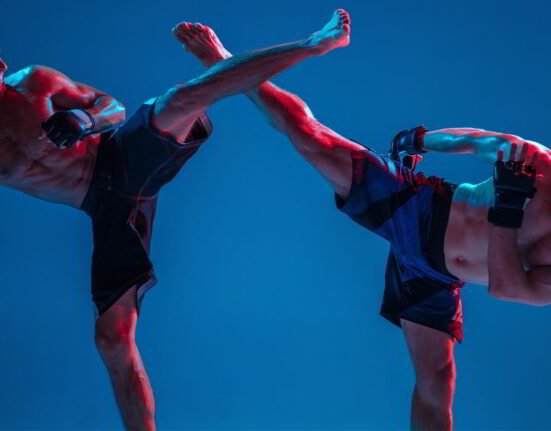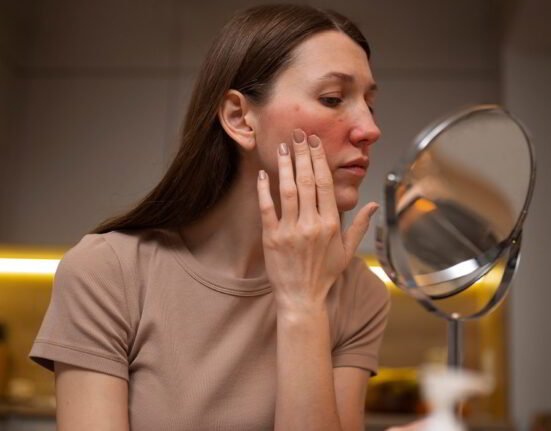At some point in our lives, all people have come across situations that we have experienced or something we have already seen. We call this phenomenon deja vu. A brain glitch is what causes this condition, which means that the present situation is equivalent to a past experience. Therefore, the person feels that they have been to this particular place before or an occasion that has occurred in the dream.
The cause behind deja vu continues to be unknown to many researchers However, a few theories have tried to explain this feeling. Moreover, the experience of deja vu can occur to any individual of any age. According to research, 97% of people have experienced deja vu at least once in their lives, and around 67% experience it regularly.
The episode of deja vu does not cause any damage to the individual and lasts for seconds, but It can be a symptom of an underlying clinical condition together with epilepsy or tension for a few individuals. Certain medicines and stress or fatigue led to an impact on deja vu. Overall, deja vu is an odd but fascinating topic for many researchers and left them confused for centuries. In this article, we can analyze more about the psychology behind deja vu and the factors that contribute to this phenomenon.
Also Read: Why Daydreaming is good for you?
Psychological Theories About Deja Vu
Memory error theories
To begin with, memory error theory is one of the psychological theories that explains why it happens. This theory explains that occurrence memory theories could be a result of many factors like Improper processing between various memory systems in the brain or faulty memory transfer between brain regions. This theory talks about the errors caused by Disparities that exist in systems within the brain: familiarity and recollection. As a result, the mismatch between these systems causes a feeling of familiarity without the ability to distinctly recall specific details. For instance, we can feel familiarity while talking to a person we have never met but we can’t remember where or when you saw them previously.
Furthermore, the idea of faulty transmission between brain regions is another theory in memory error theory. According to this theory, memories are stored in various parts of the brain and are transferred between them when necessary. These errors could be the result of disruption occurring during the transmission which leads to creating distorted memories. The evident example of this could be the traumatic brain injury.
Temporal processing theories
This theory talks about Short-term differences in sensory input and perception timing that can lead to memory errors. As we know, whatever we see around us is the result of the sensory information we gather from our surroundings. Despite this, a brief delay exists between sensory input and our conscious perception of it. It is this delay that results in error as distorted memories are possible due to the influence of previous or subsequent sensory information on our perception. Eyewitness testimonies are a good example of this theory.
A split-second delay in neural signals reaching consciousness is also another thing suggested in this theory. This split-second delay can cause memory errors and the information can be lost before reaching our consciousness.
Parallel universes theory
The very famous theory about the deja vu is the parallel universe theory. This theory explains that We get a fleeting look at parallel universes or alternate realities, where we might have experienced a similar situation or event before. It is suggested in this theory that our sense of familiarity is a result of tapping into memories from a parallel universe.
Also Read: The Psychology Behind Lucid Dreaming
One thing that this theory lacks is that there is no scientific evidence, but it is highly speculative. Since there is no way to prove or disprove the existence of a parallel universe. This phenomena can be understood by the memory error theory and Temporal processing theories. Moreover, the parallel universe theory poses questions about the nature of reality and the concept of self, which are not within the realm of scientific inquiry.
Factors That Contribute To Deja Vu
Fatigue and stress
Fatigue and stress are some of the factors that contribute to deja vu. Whenever a person experiences fatigue, the functioning of the brain is not done properly which creates memory lapses. As a consequence, the person may face similarity and repetition, and hence deja vu happens.
Moreover, stress and deja vu share a close relationship with each other. As stress can affect the brain’s ability to store information and can cause the brain to be overwhelmed resulting in it mixing up memories and generating a sense of familiarity with a new experience. It can also affect the brain neurotransmitters like dopamine and serotonin and in return, it causes disruption in reality which creates the phenomenon of deja vu.
Medical conditions like epilepsy and schizophrenia
As we know, the episodes of deja vu in most cases are harmful but they could be a symptom of underlying medical conditions like epilepsy and schizophrenia. The brain’s normal functioning can be disrupted by abnormal electrical discharges, which can cause deja vu. This is a possibility that could occur at some point during or after a seizure, as well as for the duration of instances can increase brain activity. In the same manner, humans with schizophrenia due to the disruptions within the brain can make a person experience this.
Also Read: Epilepsy- A lifelong condition
Epilepsy and schizophrenia are kinds of conditions that include the changes in memory and perception of an individual. These are the crucial components of deja vu. Individuals with these conditions might also have altered memory and perceptions, leading to them feeling like they have already felt something earlier, even supposing they haven’t.
In conclusion, regardless of many theories related to deja vu, the mystery behind this phenomenon nevertheless remains. Researchers are puzzled and can’t pinpoint a definitive cause because of this unexplainable feeling of familiarity, even when experiencing something for the first time. However, studies and speculation are still going on to apprehend the phenomena of deja vu.
References+
- https://www.verywellmind.com/what-is-deja-vu-why-do-we-experience-it-5272526#:~:text=It%20is%20believed%20that%20d%C3%A9j%C3%A0,not%20actually%20seen%20this%20before.
- https://pubmed.ncbi.nlm.nih.gov/29546854/#:~:text=It%20is%20thought%20that%20as,organic%20factors%2C%20and%20unconscious%20memories.
- https://www.sciencefocus.com/the-human-body/deja-vu
- https://www.newsclick.in/deja-vu-how-science-explains-mysterious-phenomenon#:~:text=There%20are%20also%20studies%20linking,we’ve%20already%20experienced.%22













Leave feedback about this